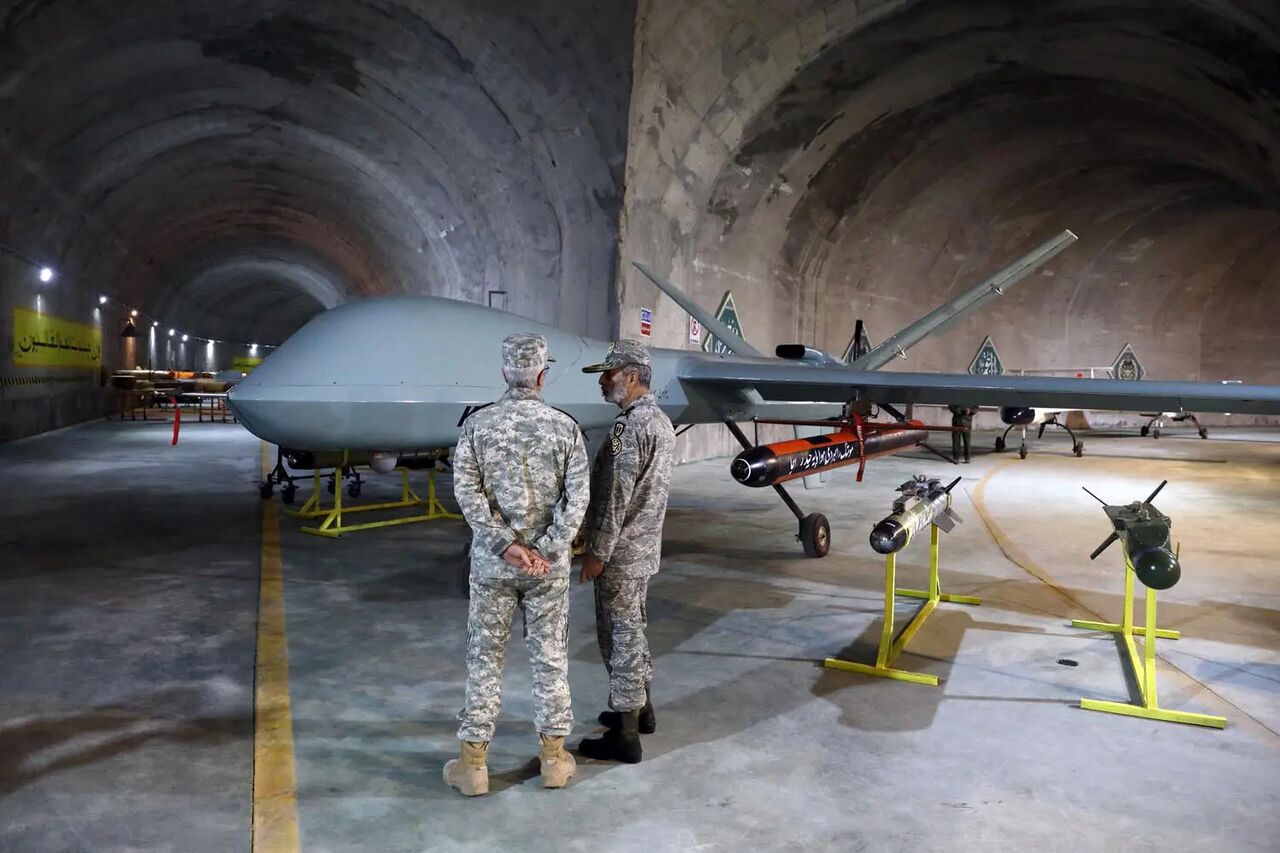The Islamic Republic of Iran, which has always played a constructive and positive role in intra-regional developments and the solution of political-security crises in West Asia, in the years after the imposed war had a special focus on the quantitative and qualitative expansion of its military-defense capabilities and its deterrent power, including in the field of “unmanned aerial vehicle (UAV)”.
Eight years of unequal imposed war when no country was willing to meet Iran’s weapons needs, is an expensive experience for upgrading the country’s military and defense infrastructure; at a juncture of time when the Time magazine described it as “the age of drones” in 2019.
Possessing a large number of advanced UAVs with various capabilities of detection, surveillance, combat, electronic warfare, agriculture, telecommunications, weather, traffic control, etc. in different types has made Iran one of the “four superior powers” in the manufacture of unmanned aircraft in the world, this issue is considered as a “strong point” for Iran.
If we look at the issue from an economic point of view, there are two important factors that have turned drones into a “unique market” which is profitable: 1- The rapid trend of using drones in the world, which goes beyond the military fields, including agriculture, natural disaster management, weather, traffic monitoring, etc. have expanded. 2- The limitation and monopoly of UAV production technologies that are available to a few countries. According to the existing estimates, the cost that countries will allocate for the purchase of drones until 2023 will reach more than 15 billion dollars per year, which can provide a profitable market to its manufacturers for the export of drones. At the same time, many low-income countries also tend to buy drones en masse, the cost of which is usually less than one million dollars, instead of buying expensive weapons such as American F35 fighters, which cost 110 million dollars.
American political and media circles, the Zionist regime and some countries aligned with them, while acknowledging Iran’s drone capabilities, have always tried to “induce” that Iran’s increasing progress in this technology is a threat to the region!
Iran’s possession of drone power and placing the knowledge and technology of this guided bird at the disposal of friendly and allied countries as well as the Islamic Resistance Front have had important consequences in the direction of deepening peace and security at the regional level, the most important of which are as follows:
One: the effective and efficient role of drones in the field of “fighting terrorism”, especially ISIS in Syria and Iraq through reconnaissance, support and combat missions, which even the Americans have acknowledged in their private meetings.
Two: The change in the concept of power and the “balance of field force” in the region, which has made the hands of the Islamic Resistance more open to reduce military costs and material losses and casualties, and to deal “strategic strikes” on the enemy, which has become a big challenge for the United States and the Zionist regime which firmly believe in “creating war and crisis” to secure their own interests.
Three: Reduction of human casualties and material losses compared to the past battles of the Islamic Resistance Front with the Zionist regime and the anti-resistance axis, which is at the head of the criminal measures and the war against that front.
Four: “Destroying America’s air supremacy” after years in the region, which General McKenzie, the former Commander of United States Central Command in the Middle East (CENTCOM) also admitted a while ago.
In the special regional and international conditions, where military and hardware threats are still strong and take on new and more complex dimensions every day, and great powers like the United States look at war as a “tool” to advance their regional and global interests, having advanced and practical technology in the field of design, manufacture, mass production and export of UAVs is considered as a “strategic advantage” in the military field.
Strategic Importance of India-Middle East-Europe Economic Corridor
Strategic Council Online – Interview: An expert on subcontinental issues said that India and the United Arab Emirates are working on the first phase of the creation of the India-Middle East-Europe Economic Corridor, known as the IMEC Corridor (ArabMed), which is an alternative route to the Strait of Hormuz and China’s Silk Road plan. Although there are some speculations that with the continuation of the war in Gaza and the unrest in the Middle East, work on this corridor may be sidelined.










0 Comments